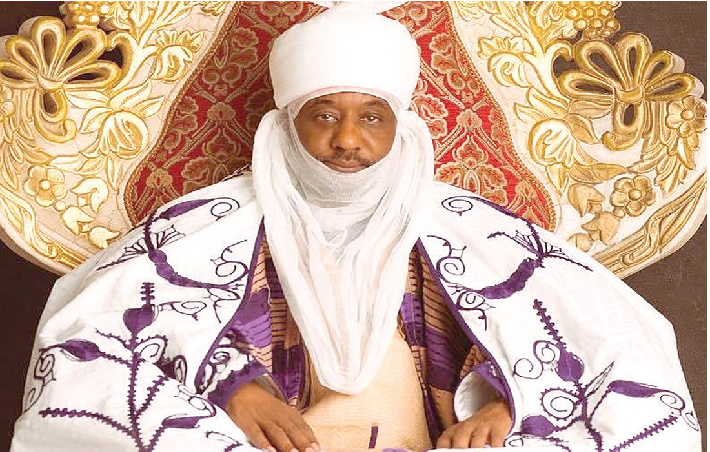The first anniversary of the reinstatement of His Highness, Malam Muhammadu Sanusi II, as the Emir of Kano, was marked with a day of prayer and reflection at the Emir’s Palace. The event, attended by a diverse array of dignitaries, including Islamic scholars, traditional leaders, government officials, and members of the public, underscored the significance of the Emir’s return to the throne and reaffirmed the Kano State Government’s commitment to upholding the sanctity of traditional institutions. This symbolic gathering served as a powerful testament to the enduring respect and reverence accorded to the Emir and the traditional authority he represents.
The presence of Deputy Governor Comrade Aminu Abdussalam Gwarzo highlighted the government’s recognition of the pivotal role traditional institutions play in maintaining social harmony and stability. Gwarzo’s address emphasized the Yusuf administration’s deep respect for these institutions and its commitment to fostering a collaborative relationship that serves the best interests of the people of Kano State. His words conveyed a clear message of support for the Emir and the traditional system he embodies, signaling the government’s intention to work in partnership with traditional leaders to achieve shared goals of peace and prosperity.
Deputy Governor Gwarzo’s commendation of Emir Sanusi II’s leadership further solidified the significance of the occasion. He praised the Emir’s commitment to justice and his unwavering advocacy for the well-being of his people. This public acknowledgement of the Emir’s virtues underscored the mutual respect between the government and the traditional leadership, reinforcing the idea of a unified front working towards the common good. The event served not only as a celebration of the Emir’s return but also as a platform to highlight the importance of his leadership qualities in the context of Kano’s future.
The choice of a prayer session as the central theme of the anniversary speaks volumes about the cultural and spiritual context of the Emir’s position. Led by revered Islamic clerics, the prayers focused on continued peace, unity, and prosperity for Kano State under the guidance of both the Emir and the current administration. This emphasis on spiritual guidance underscored the belief that the Emir’s role extends beyond the temporal realm, encompassing a responsibility to the spiritual well-being of his people. The prayers served as a collective affirmation of the shared hopes and aspirations for a prosperous future for Kano State.
The event effectively highlighted the symbiotic relationship between the government and traditional institutions. The public display of mutual respect and commitment to collaboration served to reinforce the idea of a shared responsibility for the well-being of the people of Kano. By honoring the Emir and acknowledging the importance of traditional leadership, the government signaled its recognition of the crucial role these institutions play in maintaining social order and promoting progress. The anniversary celebration became a powerful symbol of unity and a pledge for continued cooperation in pursuit of a common vision for Kano State.
The celebration of the Emir’s reinstatement served as a powerful reminder of the enduring influence of traditional leadership in Kano State. By combining religious observance with political pronouncements, the event underscored the interconnectedness of these spheres within the socio-political fabric of the region. The public display of unity and shared purpose between the government and the traditional authority represented by the Emir sent a strong message of stability and continuity, signifying a commitment to working together for the betterment of Kano State and its people. The anniversary, therefore, transcended a mere commemoration; it became a reaffirmation of shared values and a commitment to a collaborative future.


